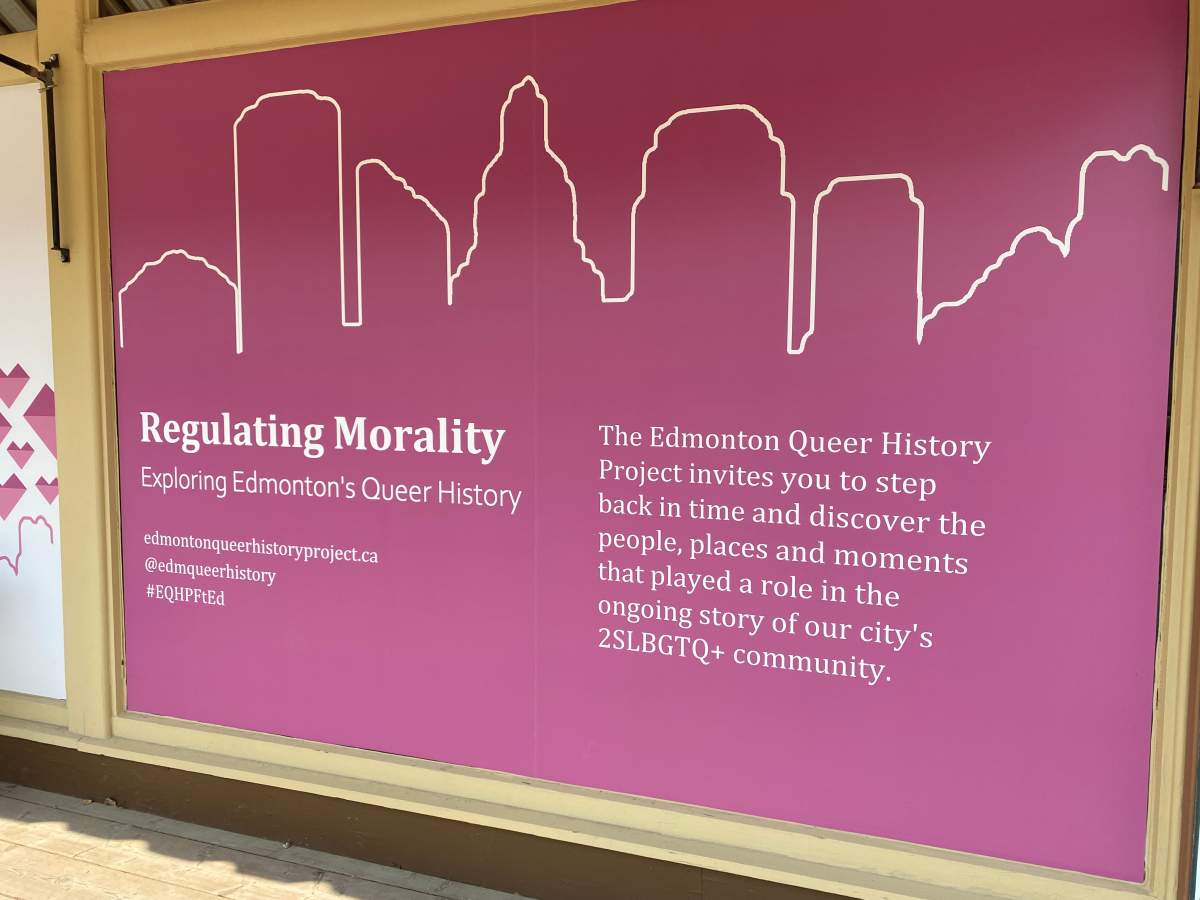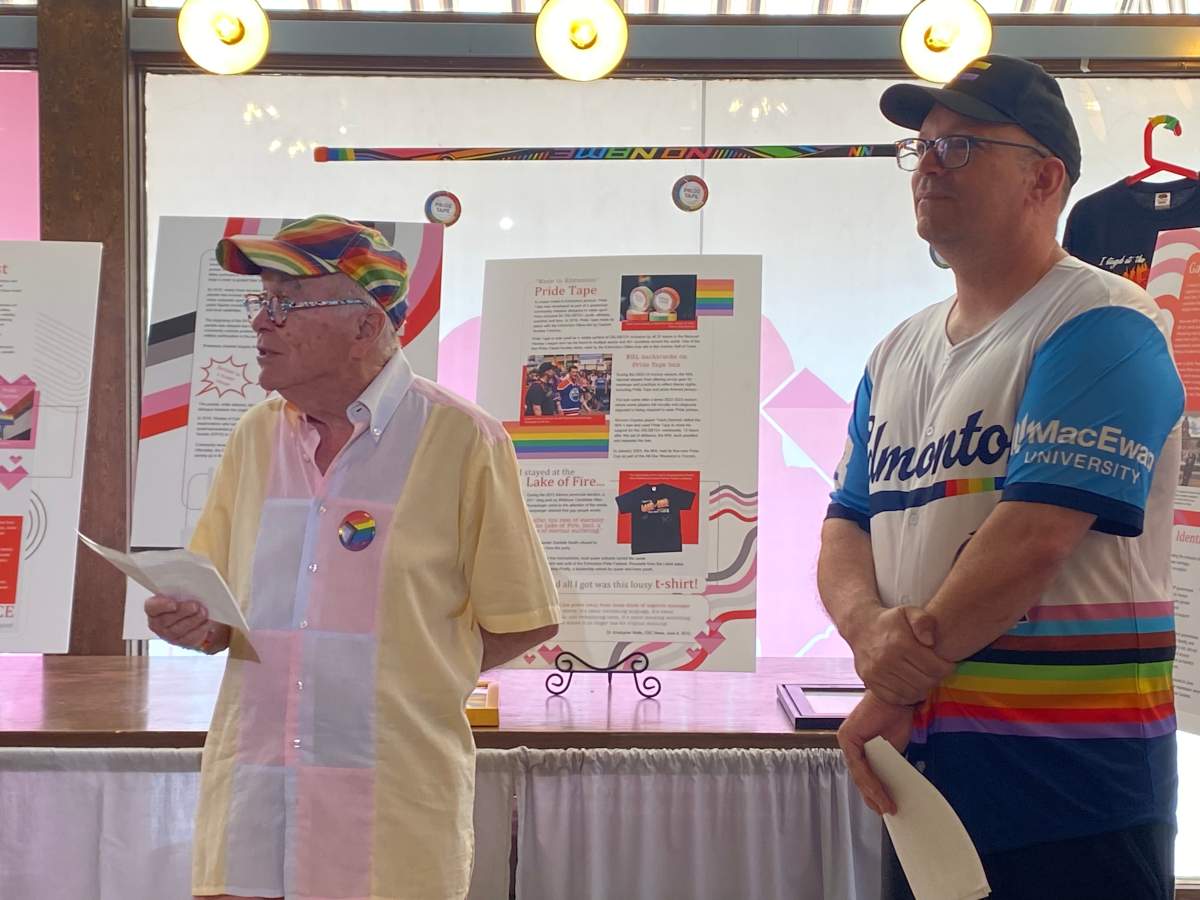Fort Edmonton Park has a new exhibit honouring the city’s 2SLGBTQ+ community.

It’s called Regulating Morality and it took the Edmonton Queer History Project (EQHP) a year to put together.
The exhibit features key historic events like the AIDS pandemic and same-sex marriage rights.
“Show that queer history has always been part of Edmonton’s community, even though you might have not been able to see it so visibly 100 years ago,” said Kristopher Wells, founder of the EQHP and Canada Research Chair for the public understanding of sexual and gender minority youth and associate professor at MacEwan University.
The exhibit also explores educational and political challenges surrounding 2SLGBTQ+ issues in Alberta over the past century.
“It’s really important we document past activism past celebrations to show that we’ve had to always fight for human rights – and here we are having to fight for them again,” Wells said.
For a long time, Fort Edmonton Park only focused on one type of history.

Get breaking National news
“A lot of buildings that were historically preserved in the past belong to white colonial settlers,” said Neil Cramer, public interpretation coordinator at Fort Edmonton Park.

Now it strives to tell more stories.
“We want every visitor that comes here to see themselves reflected in Edmonton’s history and we can’t do that unless we are creating space to tell these narratives.”
Former city councillor Michael Phair cut the ceremonial ribbon at Monday’s event. He was the first openly gay politician to be elected in Alberta in 1992.
“There was a job on my part to build a relationship,” Phair said.
“When the Human Rights Commission had their hearings across the province, it was me that council sent to go represent the city.”
Phair remains modest about the work he’s done for 2SLGBTQ+ rights.
“I never thought I was paving the way. I was just doing what I thought I could do and also with others,” Phair said.
The exhibit is located in the Reed’s Bazaar building at Fort Edmonton during regular park hours until Sept. 15.
“By knowing you have a past history you can also imagine a future and that’s really important in a time that is challenging and difficult right now,” Wells said.







Comments